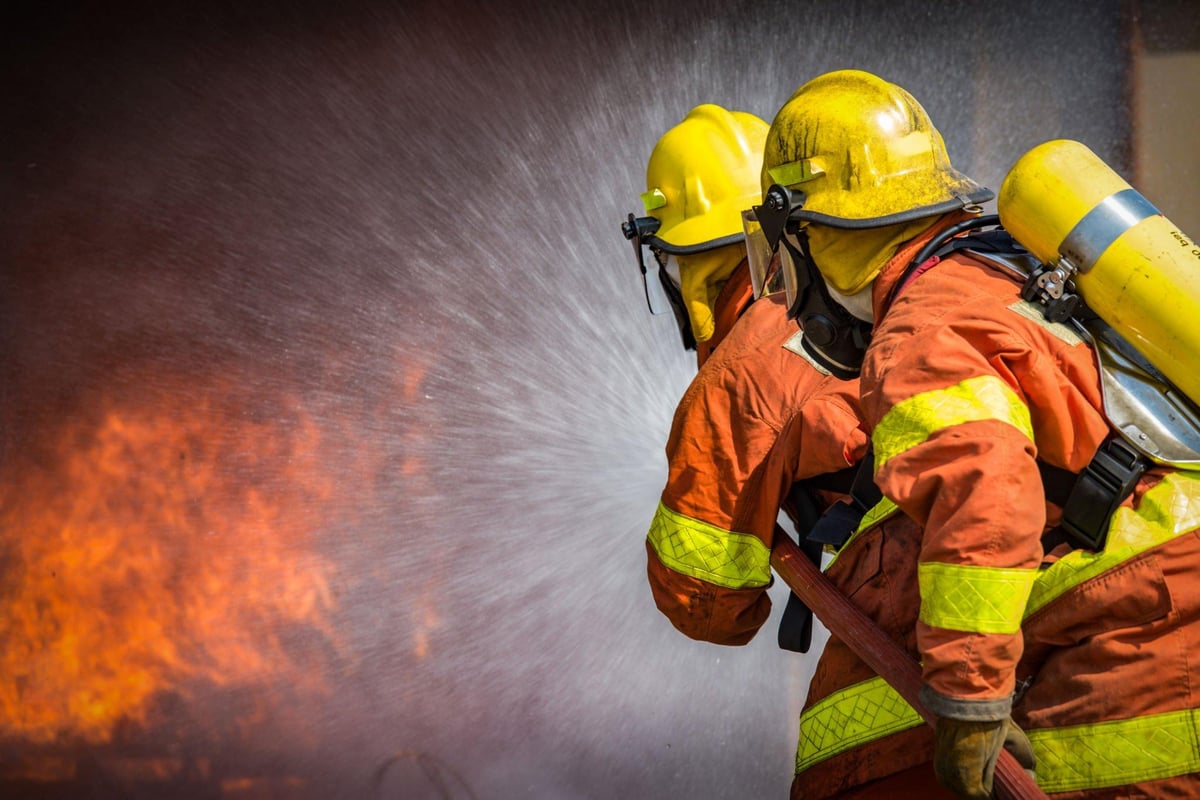
Financial aid (may be available)

No cost info

Financial aid (may be available)

Financial aid (may be available)
Are you interested in pursuing a career in firefighting? If you're located in Stockton, California, you're in luck! There are several fire science classes available near you that can help you kickstart your journey towards becoming a firefighter. In this blog post, we'll explore what fire science is, the training requirements, what to look for in a class, what to expect from day-to-day classes, the certification process, how to find related jobs, and other classes you can take after becoming a fire science professional.

Fire science is the study of fire behavior, prevention, suppression, and investigation techniques. It encompasses a wide range of knowledge and skills necessary for effective firefighting and fire prevention. Fire science professionals play a critical role in protecting lives and property from the devastating effects of fires.
To become a firefighter, you'll need to complete a fire science training program. The training requirements may vary depending on the state and the specific fire department you're applying to. However, most fire science programs include the following components:
When searching for fire science classes near you in Stockton, there are several factors to consider to ensure you choose the right program for your needs. Here are some things to look for:
Fire science classes typically combine classroom instruction with hands-on training. Here's what you can expect from your day-to-day classes:
After completing your fire science training, you'll need to obtain certification to become a firefighter. The certification process typically involves the following steps:
Once you've obtained your fire science certification, you'll be ready to start your career as a firefighter. Here are some ways to find related jobs:
Fire science is a diverse field, and there are several other classes you can take to further specialize or enhance your skills. Here are some additional classes to consider:
If you're passionate about firefighting and want to pursue a career in this field, enrolling in fire science classes near you in Stockton is an excellent first step. These classes will provide you with the knowledge, skills, and certifications needed to embark on a rewarding career as a firefighter. Remember to consider factors such as accreditation, experienced instructors, facilities, and job placement assistance when choosing a program. And don't forget to explore other classes and training opportunities to further enhance your skills. Good luck on your journey to becoming a firefighter!
If you're considering pursuing this certification in a different location, we have other in-depth guides to help. Check out our guides for different cities below:
Thinking about a potential career transition? Dreambound offers detailed guides to help you with making an informed decision. Dive in below:
Dreambound's platform allows prospective students to find the right educational program for them through searching, filtering, and connecting with our extensive selection of career & technical education partners.
Dreambound has over 70 programs across healthcare, technology, business, and industrial trades. This includes programs such as Medical Billing, Cybersecurity, and welding.
Some of our schools offer financial aid for those who qualify. Many others offer payment plans, where you can pay the cost of class over time.
Yes, Dreambound offers many online programs. On Dreambound's search, you can filter by online, in-person, and hybrid (part online, part in-person).
Dreambound is completely free for you to use! We are supported by schools and organizations who pay to advertise on our website, so we can offer all of our career resources for free.